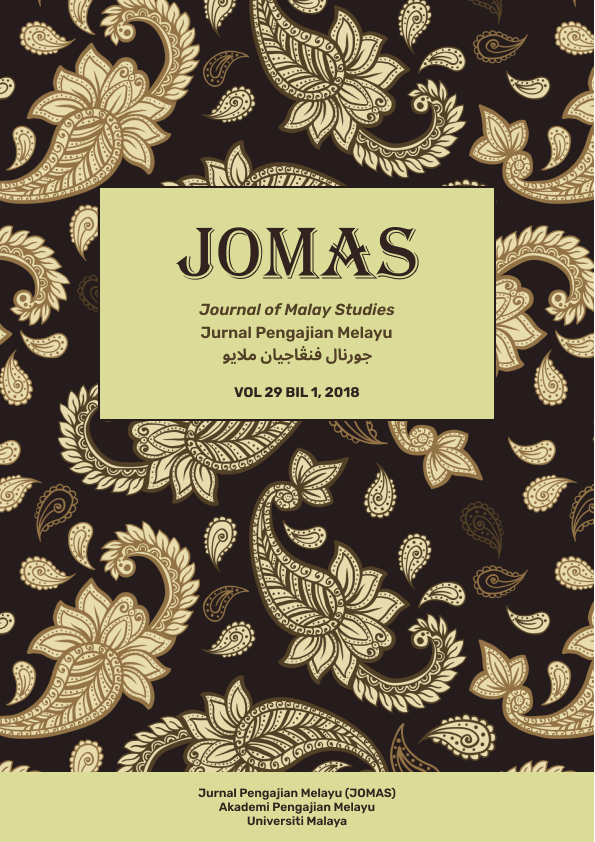KAFFAH DAN REMAJA DALAM NOVEL SESEGAR NAILOFAR DAN RONA BOSPHORUS
Main Article Content
Abstract
Youths are the leaders of tomorrow. However, most of the youth who are
considered as the nation strength are still bounded by social problems. There
are a lot of criminal cases involving them including gangsterism, promiscuity,
baby dumping and drug abuse. Due to these problems, youth need a model to
shape a better personality. This study examines novels by Zaid Akhtar, namely
Sesegar Nailofar (2000) and Rona Bhosphorus (2002) to review their
insights into social ills. The analyses focus on issues of character among Muslim
youth through the novels’ characters as a means to create positive role models for
the youth. The research framework uses Prophetic Ideas by Kuntowijoyo, inspired
by the spirit of relationship between Malaysia and Indonesia after a long time
of following in a Western mould. The idea is derived from Surah Ali ‘Imran,
verse 110, which outlines three ethical concept as its main pillars: amar makruf
(enjoin what is right, humanization), nahi mungkar (forbid the wrong,
liberalisation), and tu’minunabullah (believe in Allah, transcendence). As a
whole, these three form the concept of kaffah, which means ‘comprehensive’ or
‘integrated.’ Through analyses of the two aforementioned Zaid Akhtar novels,
this study identifies elements of Kuntowijoyo’s Prophetic Ideas, and connects
them to the concept of kaffah. The novels discuss youth and their philosophy of
jihad regarding education and the fight against enemies of Islam. Thus, those characters become better youth, avoid forbidden actions, and guide themselves
to the right path and worship of Allah.
Keywords: Kaffah; young adult’s novels; Rona Bhosphorus; Sesegar Nailofar; Zaid Akhtar.

